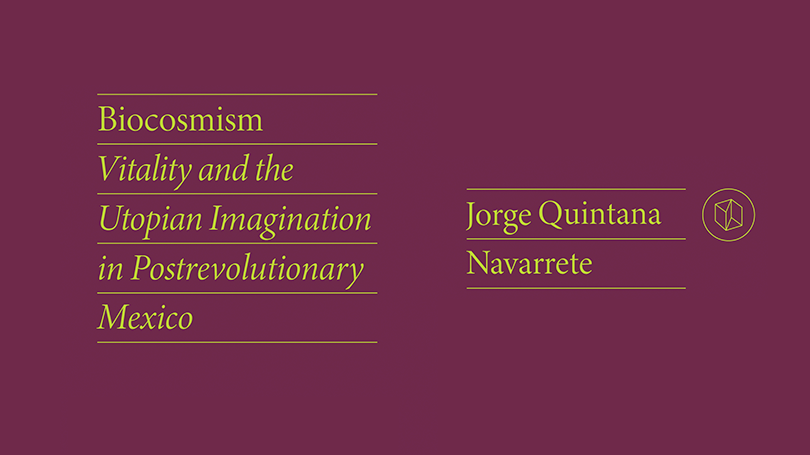
- About
- Undergraduate
- Foreign Study
- Student Opportunities
- La Casa
- News & Events
- People
Back to Top Nav
Back to Top Nav
Back to Top Nav
Back to Top Nav
Back to Top Nav
In Biocosmism, the newest book by Jorge Quintana Navarrete, Assistant Professor of Spanish at Dartmouth, he examine how a group of scientists, artists, and philosophers conceived the manifold relations of the human species with cosmological forces and nonhuman entities (animals, plants, inorganic matter, and celestial bodies, among others).
"Drawing from recent theoretical trends in new materialisms, biopolitics, and posthumanism, this book traces for the first time the intellectual constellation of biocosmism or biocosmic thought: the study of universal life understood as the vital vibrancy that animates everything in the cosmos from inorganic matter to living organisms to outer space. It combines both analysis of unexplored areas—such as Alfonso L. Herrera's plasmogeny—and innovative readings of canonical texts like Vasconcelos's La raza cósmica to examine how biocosmism produced a wide array of utopian projects and theorizations that continue to challenge anthropocentric, biopolitical frameworks".
"In this fascinating, original, and meticulously researched book, Quintana Navarrete offers compelling insights on the roles of scientific discourse and utopian thinking through his exploration of both familiar and lesser-known works of the Mexican postrevolutionary period. Biocosmism opens new angles of debate and exploration in Mexican studies and in the humanities more broadly."
—Susan Antebi, author of Embodied Archive: Disability in Post-Revolutionary Mexican Cultural Production
"In Biocosmism, Quintana Navarrete paints a provocative landscape where the anthropocentric focus on creating a new citizen is put aside, and speculations on the consciousness, agency, and creativity of natural forms become central to postrevolutionary utopian imagination."
—Laura Torres-Rodríguez, author of Orientaciones transpacíficas: la modernidad mexicana y el espectro de Asia
https://www.vanderbiltuniversitypress.com/9780826506511/biocosmism/